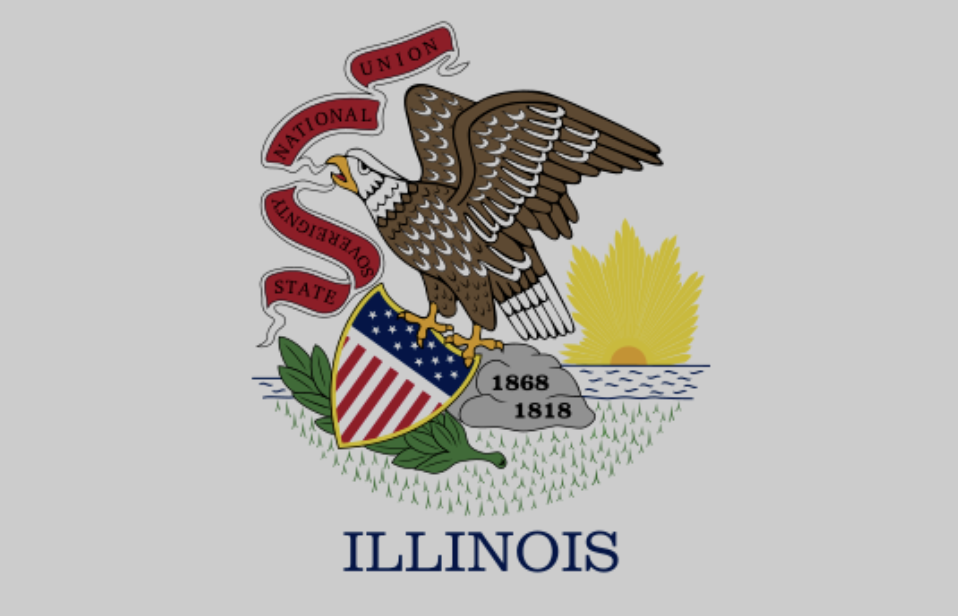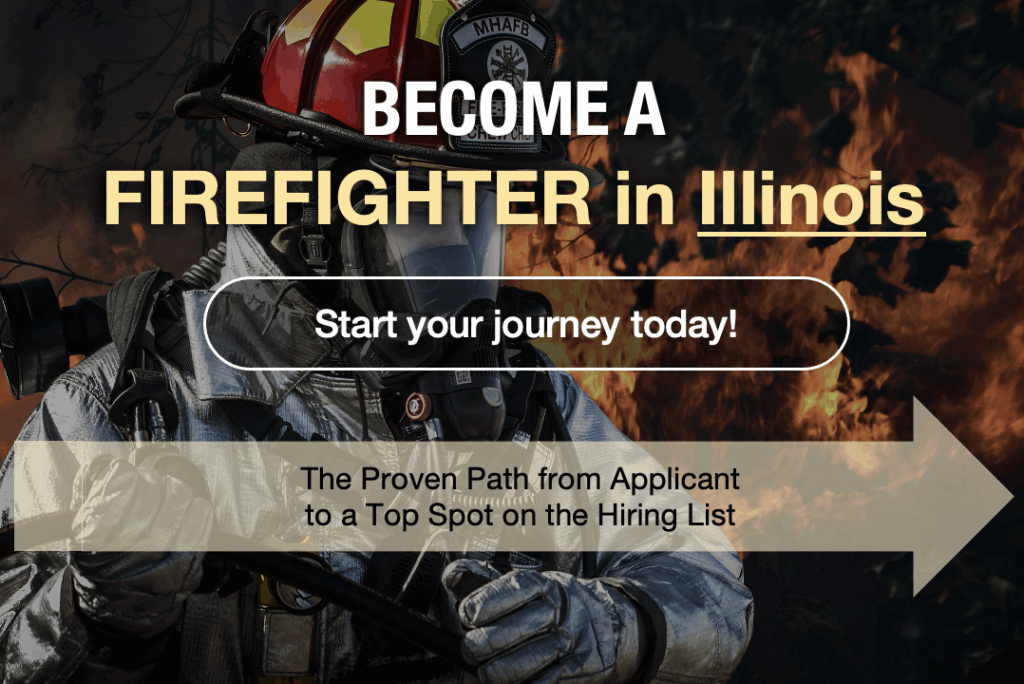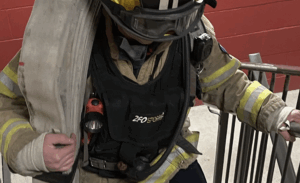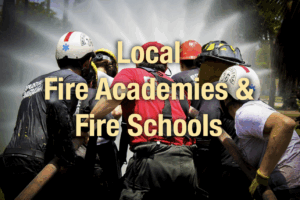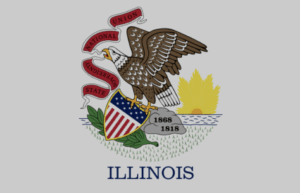If you’re wondering how to become a firefighter in Illinois, you’re not alone.
Becoming a firefighter in Illinois offers a fulfilling career with opportunities in both urban and rural areas.
Whether you aim to serve in major cities like Chicago or smaller departments across the state, understanding the step-by-step process is essential to your success.
This guide will help you navigate the path to becoming a firefighter in Illinois, detailing the necessary qualifications, exams, and training.
General Steps to Become a Firefighter in Illinois
Becoming a firefighter in Illinois requires determination, physical endurance, and a strong desire to help others. Follow these key steps to ensure you’re on the right track to joining Illinois’ fire service.
1. Meet Basic Eligibility Requirements
The first step is meeting the basic eligibility criteria set by most Illinois fire departments:
- Age & Education: You must be at least 18 years old and have a high school diploma or GED.
- Driver’s License: A valid Illinois Class D driver’s license is required to apply to most departments.
- Residency Requirements: Some departments may require you to live within a certain distance of the fire department to ensure you can respond to emergencies quickly.
2. Obtain Emergency Medical Certification
Many fire departments in Illinois require applicants to have at least Emergency Medical Technician (EMT) certification, with some requiring a paramedic certification. Firefighters are often first responders to medical emergencies, making EMT training crucial.
- Certification: Obtain EMT certification through the Illinois Department of Public Health or a nationally recognized program.
- Training: EMT programs can take several months to complete, and most fire departments require this certification by the time of hiring or during the application process.
3. Apply to Fire Departments
After ensuring you meet the basic qualifications, research fire departments in Illinois that fit your career goals. Fire departments often have unique requirements and timelines, so keep the following in mind:
- Application Deadlines: Stay aware of when applications open and close.
- Department-Specific Requirements: Some fire departments may ask for additional certifications or higher education, so it’s important to understand their specific needs. For example, Chicago may have different qualifications than smaller departments.
4. Pass the Firefighter Entrance Exam
The firefighter entrance exam is a significant part of the hiring process in Illinois. Many fire departments use this multi-step process to assess candidates:
- Written Test: The written test evaluates your cognitive abilities, such as reading comprehension, mechanical reasoning, memory, and situational judgment. Scoring high on this test is essential to advance in the hiring process.
- Physical Ability Test: This test assesses your physical strength and stamina. The Candidate Physical Ability Test (CPAT) or other department-specific tests simulate tasks you might encounter during a fire response, such as hose dragging, stair climbing, and victim rescue.
- Oral Interview: The oral interview evaluates your communication skills, personality, decision-making ability, and motivation for becoming a firefighter. Interview performance is crucial for standing out in the selection process.
5. Complete Background and Psychological Evaluations
As part of the selection process, you’ll undergo a thorough background check to review your criminal history, driving record, and previous employment. You’ll also need to undergo a psychological evaluation to assess your mental fitness for the demands of firefighting.
6. Pass the Medical Examination
A comprehensive medical evaluation ensures that you meet the physical health standards required for firefighting. This includes:
- Vision and Hearing Tests: Ensuring that your sensory abilities are adequate for the job.
- Cardiovascular Screening: Firefighting is physically demanding, so departments require candidates to meet cardiovascular health standards.
- Musculoskeletal Assessments: Physical fitness is vital, and candidates must pass evaluations related to strength, flexibility, and overall fitness.
7. Complete Fire Academy Training
Once hired, you’ll attend a fire academy where you’ll receive hands-on training and classroom instruction. Fire academies across Illinois provide intensive courses covering firefighting techniques, equipment usage, hazardous materials handling, and more. Be prepared to demonstrate your skills in real-world scenarios.
8. Continuous Professional Development
Firefighting is a career that requires ongoing education and training. Continuing education will help you maintain certifications, develop new skills, and advance in your career.
- Certifications: Additional certifications, such as Hazmat, Fire Officer, or Technical Rescue, can help you specialize.
- Ongoing Training: Participate in annual drills and training to stay updated on new firefighting techniques and safety protocols.
Why Scoring High on the Firefighter Exam in Illinois Is So Important
In Illinois, passing the firefighter entrance exam is only the beginning—scoring well is vital for getting hired.
Fire departments often rank candidates based on their test scores, and the top candidates are selected for interviews.
Here’s why:
Your success on the firefighter exam plays a pivotal role in your career prospects.
Each department uses the results of the entrance exam to create a ranked list of candidates, and departments typically hire directly from this list. Here’s what to expect:
- Written Exam: The higher your score, the better your chances of ranking at the top.
- Physical Ability Test (PAT or CPAT): The physical test is a rigorous part of the process. Scoring well ensures you demonstrate the physical stamina and skills needed for the job.
- Oral Interview: This is your chance to stand out as a candidate who’s not only physically qualified but also emotionally and mentally prepared for the demands of firefighting.
The higher your score, the better your chances of getting hired.
Becoming a Firefighter in Chicago
The Chicago Fire Department is one of the largest in the state, and its application process is highly competitive. Here’s a summary of the steps:
- Age & Education: Must be at least 21 years old, with a high school diploma or GED.
- Driver’s License: A valid Illinois Class D driver’s license.
- EMT Certification: Required by the time of the interview.
- Exams: Includes a written test, physical fitness exam, and oral interview.
- Application Process: Candidates must submit their application online when recruitment periods open. The process is highly competitive, with only the top-scoring candidates moving forward.
It’s important to regularly check these websites for the most current information on application deadlines, eligibility requirements, and recruitment events.
Additionally, subscribing to interest lists or newsletters, can provide timely updates on upcoming opportunities.
Becoming a Firefighter in Other Illinois Cities
Other cities in Illinois, such as Springfield, Rockford, and Peoria, have similar requirements but may vary in specifics such as age, educational background, and certification needs. Be sure to research the specific fire department you’re interested in to understand its unique qualifications and hiring process.
How to Stand Out as a Firefighter Applicant in Illinois
To gain a competitive edge:
- Train for the CPAT early to ensure you can pass it with ease
- Score high on the written test using prep books and online tests
- Earn your EMT or Paramedic license before applying
- Volunteer or work part-time at smaller departments
- Practice mock interviews to boost confidence and performance
- Use top prep materials: Mastering the Firefighter Exam and Firefighter-Test.com offer targeted practice
Firefighter Salary in Illinois
- Annual Mean Wage (May 2023): $75,610 per year (mean hourly $36.35)
Benefits (vary by municipality, but generally include):
- Pension: Defined‑benefit retirement through the Illinois Municipal Retirement Fund (IMRF), providing lifelong income protection after 8–10 years of service
- Health & Insurance: Medical, dental, vision, and life insurance coverage (employer‑sponsored)
- Paid Leave: Vacation, sick leave, and paid holidays
- Overtime & Shift Differential: Premium pay for extra shifts and differential for evenings/weekends
- Uniform & Equipment Allowance: Stipends for uniforms and gear
Note: Exact benefit packages—including contribution rates, leave accruals, and specialty pay—vary by city or county department. Always check the local HR or civil service website for full details.
Firefighter Salary and Benefits in Chicago
- Starting Base Salary (as of June 30, 2021): $62,160 per year
- Salary After 5 Years: $98,424 per year
- Average Total Pay (Glassdoor estimate): ~$78,061 per year (including overtime & holiday pay; base avg. $67,934)
Benefits:
- Holiday Pay: Premium pay for City‑designated holidays
- Duty Availability Pay: Compensation for standby or callback duties
- Specialty Pay: Additional stipends for roles like hazmat, marine, or technical rescue
- Uniform Allowance: Annual stipend for uniform purchase/maintenance
- Pension: Defined‑benefit pension administered by the Firemen’s Annuity & Benefit Fund of Chicago
- Health Insurance: Comprehensive medical, dental, and vision plans (City‑sponsored)
- Paid Leave: Vacation, sick, and personal days; union‑negotiated holiday schedules
- Life & Disability Insurance: Coverage provided through City programs
For the most up‑to‑date pay tables, benefit summaries, and CBA details, refer to the City of Chicago Fire Department’s official recruitment pages or the latest collective bargaining agreement.
Final Thoughts: How to Become a Firefighter in Illinois
Becoming a firefighter in Illinois takes effort, education, and preparation—but it’s 100% achievable with the right tools. Focus on certifications, train for the firefighter exam, and apply strategically.
Whether you want to serve in a big city or a small town, Illinois’s fire service offers exciting and meaningful career opportunities.
Start your journey today!
Prepare for the firefighter exam with the book Mastering the Firefighter Exam: The Proven Path from Applicant to Top Spot on the Hiring List. Plus, find testing opportunities at firefighter-test.com, our trusted affiliate partner.

